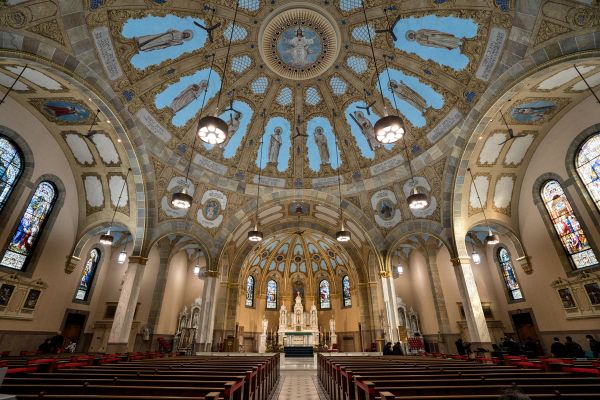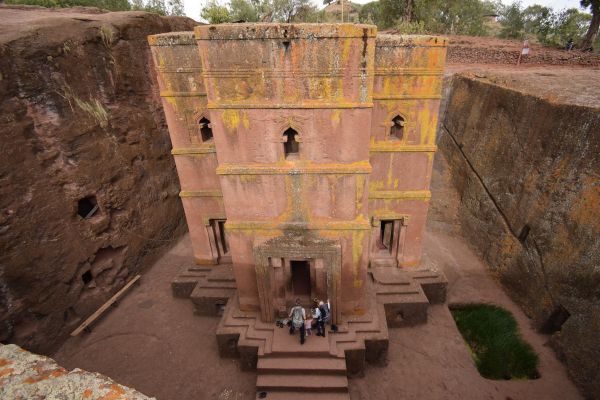As congregations grow and evolve, many churches find themselves in need of new or expanded facilities. Whether it’s constructing a brand-new building, renovating an existing structure, or purchasing land for future development, these projects often require significant financial resources. This is where church building loans come into play, offering religious organizations the opportunity to fund their expansion and better serve their communities.
In this comprehensive guide, we’ll explore the ins and outs of church building loans, providing valuable insights for church leaders, finance committees, and congregation members alike. From understanding the basics to navigating the application process and beyond, this article aims to equip you with the knowledge needed to make informed decisions about financing your church’s growth.
Understanding Church Building Loans
Church building loans are specialized financial products designed to help religious organizations fund construction, renovation, or expansion projects. These loans are tailored to the unique needs and financial structures of churches, which often differ from traditional businesses or individual borrowers.
Key features of church building loans include:
- Flexible terms: Lenders often offer customizable repayment schedules to accommodate the church’s financial situation.
- Competitive interest rates: Many lenders provide favorable rates for non-profit religious organizations.
- Large loan amounts: Church building loans can often cover substantial projects, sometimes reaching into the millions of dollars.
- Collateral requirements: The church property or other assets may be used as collateral to secure the loan.
- Specialized underwriting: Lenders consider factors unique to churches, such as tithing history and membership growth.
Understanding these fundamental aspects of church building loans is crucial for any religious organization considering a major construction or renovation project.
Types of Church Building Loans
There are several types of church building loans available, each suited to different needs and circumstances:
- Construction loans: These short-term loans finance the actual building process. They typically convert to a permanent mortgage once construction is complete.
- Renovation loans: Designed for updating or expanding existing facilities, these loans can cover a wide range of improvements.
- Land loans: Used to purchase property for future development, these loans often require a larger down payment and may have shorter terms.
- Refinancing loans: These allow churches to restructure existing debt, potentially lowering interest rates or monthly payments.
- Bridge loans: Short-term financing options that can help churches manage cash flow during transitions or while waiting for long-term funding.
- Line of credit: Provides flexible access to funds for ongoing projects or unexpected expenses.
Choosing the right type of loan depends on your church’s specific needs, financial situation, and long-term goals.
Benefits of Church Building Loans
Church building loans offer numerous advantages for growing congregations:
- Immediate expansion: Loans allow churches to start building or renovating right away, rather than waiting years to save the necessary funds.
- Improved facilities: Updated or expanded buildings can accommodate more members and enhance worship experiences.
- Community impact: New or improved facilities can enable churches to offer more community services and outreach programs.
- Financial flexibility: Structured loan repayments can be more manageable than large upfront costs.
- Potential for growth: Better facilities may attract new members, potentially increasing tithing and financial stability.
- Tax advantages: As non-profit organizations, churches may benefit from tax-exempt status on their properties.
- Customized solutions: Church building loans are tailored to the unique needs of religious organizations.
By leveraging these benefits, churches can foster growth, enhance their ministry, and better serve their communities.
Qualifying for a Church Building Loan
Securing a church building loan requires meeting certain criteria. While specific requirements may vary by lender, common qualifications include:
- Legal status: The church must be a legally recognized non-profit religious organization.
- Financial history: Lenders typically require 3-5 years of financial statements showing stable or increasing income.
- Debt service coverage ratio: This measures the church’s ability to cover loan payments with its income.
- Membership trends: Growing or stable membership numbers are viewed favorably.
- Leadership stability: A history of consistent leadership can positively influence loan decisions.
- Collateral: The church may need to offer property or other assets as security for the loan.
- Down payment: Many lenders require a down payment, often ranging from 20-30% of the project cost.
- Business plan: A detailed plan outlining the project and its financial impact on the church may be required.
- Congregational support: Evidence of strong support from the congregation can strengthen the application.
Meeting these qualifications demonstrates to lenders that the church is a responsible borrower capable of managing and repaying the loan.
The Application Process
Applying for a church building loan involves several steps:
- Initial consultation: Meet with potential lenders to discuss your needs and options.
- Gather documentation: Collect financial statements, tax returns, membership data, and other required documents.
- Complete the application: Fill out the lender’s formal loan application, providing detailed information about the church and the proposed project.
- Submit supporting materials: Provide any additional documentation requested by the lender, such as architectural plans or construction bids.
- Underwriting: The lender reviews the application and assesses the church’s creditworthiness.
- Appraisal and inspection: For loans secured by property, an appraisal and inspection may be required.
- Loan approval: If approved, the lender will provide a commitment letter outlining the terms of the loan.
- Closing: Finalize the loan agreement and sign all necessary documents.
- Funding: Receive the loan funds according to the agreed-upon disbursement schedule.
Throughout this process, open communication with the lender and thorough preparation can help ensure a smooth application experience.
Repayment Terms and Strategies
Understanding and planning for loan repayment is crucial for long-term financial stability. Common repayment terms for church building loans include:
- Term length: Typically ranging from 5 to 30 years, depending on the loan type and amount.
- Interest rates: May be fixed or variable, with rates often competitive due to the non-profit status of churches.
- Payment frequency: Usually monthly, but some lenders may offer bi-weekly or quarterly options.
- Prepayment options: Some loans allow for early repayment without penalties, which can save on interest over time.
To manage loan repayments effectively, consider these strategies:
- Budgeting: Incorporate loan payments into the church’s regular budget.
- Capital campaigns: Launch fundraising efforts specifically for the building project and loan repayment.
- Increased tithing: Encourage members to increase their regular giving to support the new facilities.
- Rental income: If possible, rent out church spaces during off-hours to generate additional income.
- Debt reduction programs: Implement church-wide initiatives to prioritize loan repayment.
- Reserve fund: Establish a reserve fund to cover payments during lean periods.
By implementing these strategies, churches can ensure they meet their loan obligations while maintaining financial health.
Alternatives to Traditional Church Building Loans
While church building loans are a popular option, there are alternatives worth considering:
- Bond programs: Some churches issue bonds to their members or the public to fund building projects.
- Crowdfunding: Online platforms can help churches raise funds from supporters worldwide.
- Denominational assistance: Some religious denominations offer financial support or loan programs for member churches.
- Grants: Religious organizations may qualify for grants from foundations or government programs for certain types of projects.
- Lease-to-own arrangements: This option allows churches to occupy a new space while working towards ownership.
- Partnerships: Collaborating with other community organizations can share costs and resources.
- Phased construction: Breaking the project into smaller, self-funded phases can reduce the need for large loans.
Each alternative has its own advantages and challenges, and the best choice depends on the church’s specific circumstances and goals.
Choosing the Right Lender
Selecting the right lender is crucial for a successful church building loan experience. Consider these factors when evaluating potential lenders:
- Experience with church loans: Look for lenders with a track record of working with religious organizations.
- Competitive rates and terms: Compare offers from multiple lenders to ensure you’re getting the best deal.
- Flexibility: Choose a lender willing to customize loan terms to your church’s needs.
- Reputation: Research the lender’s reputation and read reviews from other churches they’ve worked with.
- Customer service: Ensure the lender provides responsive, helpful support throughout the loan process.
- Additional services: Some lenders offer valuable resources like construction management assistance or financial planning tools.
- Loan limits: Confirm that the lender can accommodate the full amount you need to borrow.
- Denomination affiliation: Some lenders specialize in working with specific denominations or religious traditions.
Take the time to thoroughly research and compare lenders to find the best fit for your church’s unique situation.
Tips for a Successful Church Building Project
To ensure your church building project is successful, consider these tips:
- Plan thoroughly: Develop a comprehensive plan that addresses all aspects of the project, from design to financing.
- Communicate openly: Keep your congregation informed and involved throughout the process.
- Build consensus: Ensure broad support for the project among church leadership and members.
- Be realistic: Set achievable goals and be prepared for unexpected challenges.
- Hire experienced professionals: Work with architects, contractors, and financial advisors who understand church projects.
- Consider future needs: Design with flexibility in mind to accommodate potential growth or changing ministry focus.
- Prioritize stewardship: Make decisions that reflect good stewardship of the church’s resources.
- Stay mission-focused: Ensure the building project aligns with and supports the church’s overall mission and values.
- Plan for ongoing maintenance: Factor in long-term maintenance and operational costs when budgeting.
- Celebrate milestones: Recognize and celebrate key achievements throughout the project to maintain enthusiasm and support.
By following these tips, churches can navigate the complexities of a building project while strengthening their community and ministry.
Conclusion
Church building loans can be a powerful tool for growing congregations, enabling them to create spaces that foster worship, community, and outreach. By understanding the various types of loans available, the qualification process, and strategies for successful repayment, church leaders can make informed decisions about financing their vision for the future.
Remember that a church building project is more than just a financial transaction—it’s an investment in the spiritual and community life of your congregation. With careful planning, open communication, and a clear focus on your mission, your church can use a building loan to create a space that serves your members and community for generations to come.
As you embark on this journey, don’t hesitate to seek advice from financial professionals, experienced church leaders, and your denomination’s resources. With the right guidance and a strong foundation of faith, your church building project can become a testament to your congregation’s growth, unity, and commitment to serving others.
Frequently Asked Questions
- Q: How long does it typically take to get approved for a church building loan? A: The approval process can vary, but it typically takes 4-8 weeks from application to approval. Complex projects or large loan amounts may take longer.
- Q: Can a new church qualify for a building loan? A: While it’s more challenging, new churches can sometimes qualify for loans. They may need to demonstrate strong financial planning, committed membership, and possibly secure additional guarantees.
- Q: What is the typical interest rate for a church building loan? A: Interest rates vary based on market conditions, the church’s financial health, and the loan terms. As of 2024, rates typically range from 4% to 8% for church loans.
- Q: How much of a down payment is usually required for a church building loan? A: Most lenders require a down payment of 20-30% of the total project cost. Some may accept lower down payments for well-established churches with strong financials.
- Q: Can a church use its existing property as collateral for a building loan? A: Yes, many churches use their existing property as collateral. The property’s value and any existing liens will be considered in the loan decision.
- Q: Are there government-backed loan programs for churches? A: While there are no specific government-backed loans for churches, some churches may qualify for certain community development or rural development loan programs.
- Q: How does a church’s membership size affect its ability to get a loan? A: Membership size can influence loan decisions, as it often correlates with financial stability. However, lenders also consider factors like giving trends and financial management.
- Q: Can a church get a loan for both land purchase and construction? A: Yes, many lenders offer combination land and construction loans. These often start as short-term loans and convert to long-term mortgages upon project completion.
- Q: What happens if a church defaults on its building loan? A: If a church defaults, the lender may work with the church to restructure the loan. In worst-case scenarios, the lender could foreclose on the property used as collateral.
- Q: Are there special considerations for historic church buildings when seeking renovation loans? A: Yes, loans for historic church renovations may require additional documentation and compliance with preservation guidelines. Some lenders specialize in financing for historic properties.
- Q: How can a church improve its chances of loan approval? A: Churches can improve their chances by maintaining clear financial records, demonstrating stable or growing income, building a strong credit history, and presenting a well-developed project plan.
- Q: Is it possible to refinance an existing church building loan? A: Yes, many churches refinance their building loans to take advantage of lower interest rates or to adjust their loan terms. This can often lead to significant savings over time.
- Q: Are there tax implications for church building loans? A: While churches are generally tax-exempt, it’s important to consult with a tax professional to understand any potential implications, especially if the property will have mixed use.
- Q: Can a church use a building loan to purchase an existing building? A: Yes, many church building loans can be used to purchase existing structures. The process is often simpler than new construction loans.
- Q: How does a church’s denomination affect its loan options? A: Some denominations offer their own loan programs or preferred lenders. Additionally, certain lenders may specialize in working with specific denominations.







